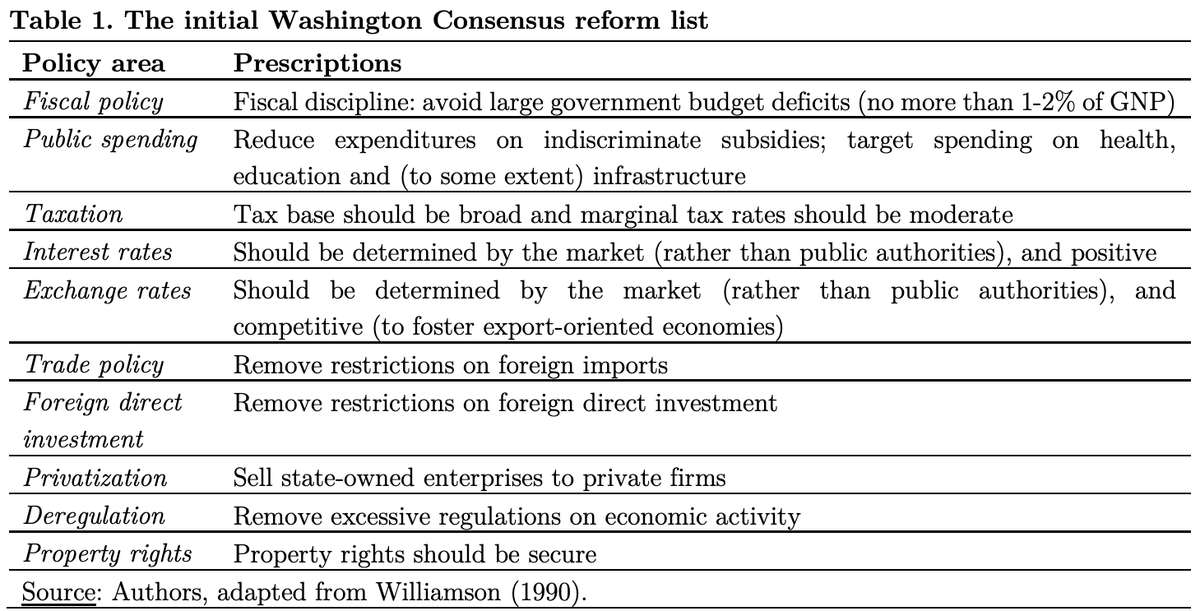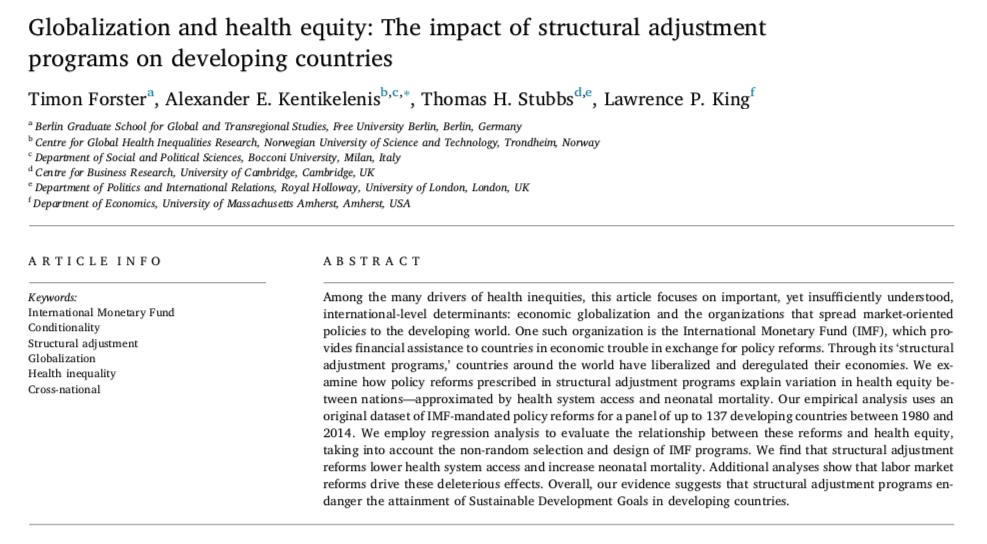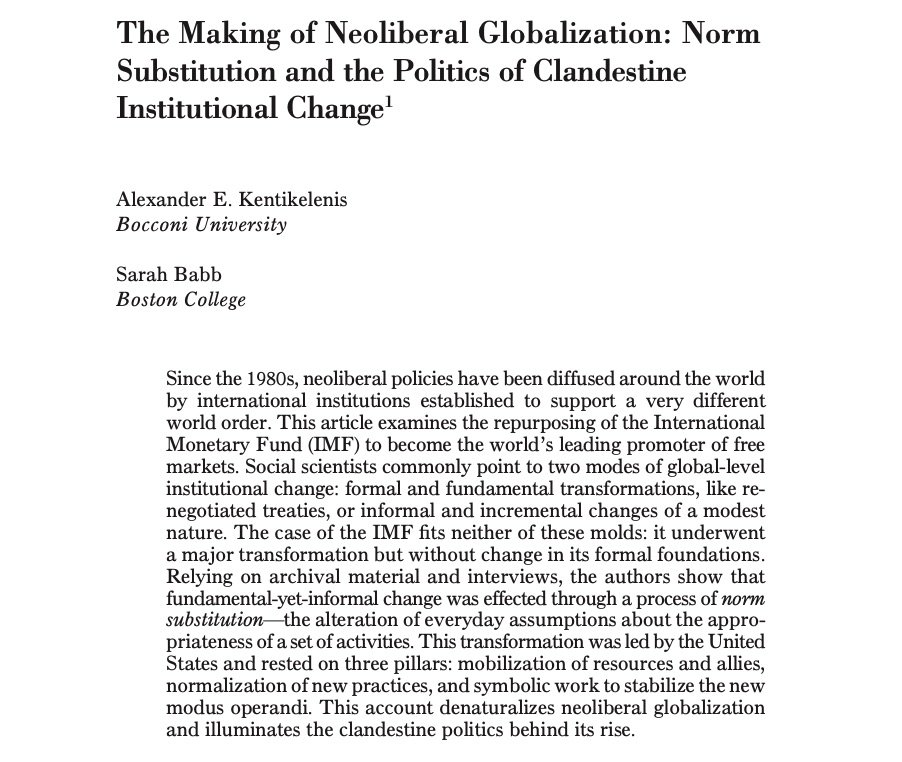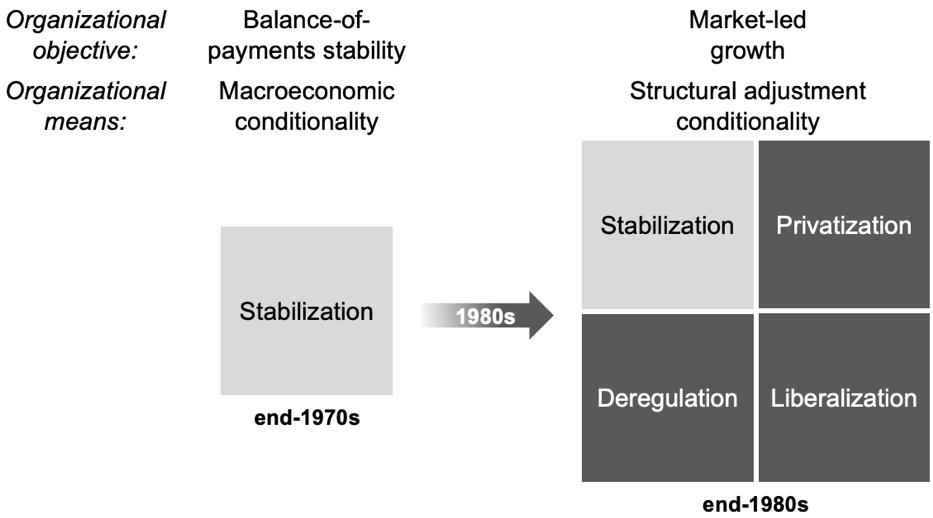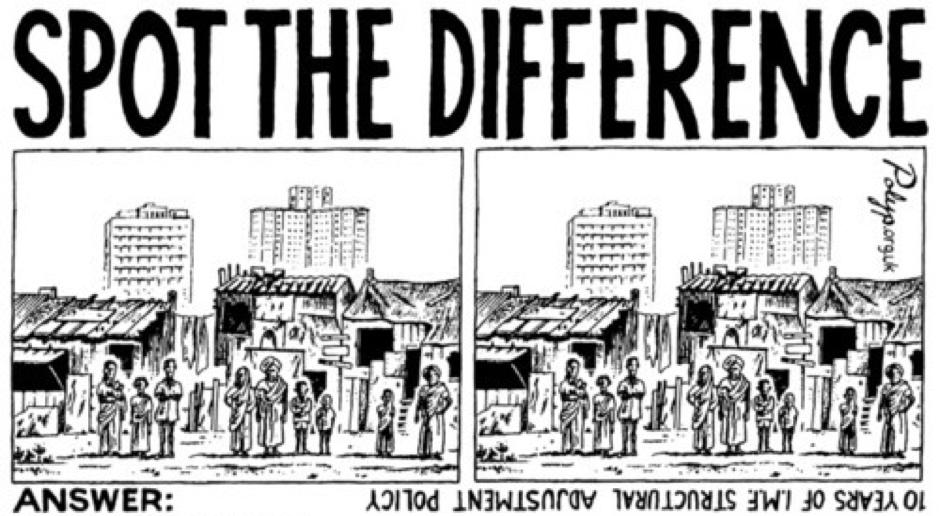
Much recent talk on whether we are entering a new or post Washington Consensus period — is the original term still relevant at all?
Sarah Babb and I explore its life and times over the past three decades in new @washingtonpost @monkeycageblog article:
washingtonpost.com/politics/2021/…
Sarah Babb and I explore its life and times over the past three decades in new @washingtonpost @monkeycageblog article:
washingtonpost.com/politics/2021/…
Check out the — somewhat optimistic — take by the FT's Martin Sandbu on a "new Washington Consensus" that likes states, social protection and fighting inequality.
ft.com/content/3d8d22…
ft.com/content/3d8d22…
Also check out a recent overview about why revisionist history about the legacy of the Washington Consensus is problematic, conceptually and methodologically.
By @cacrisalves @DanielaGabor @ingridharvold
developingeconomics.org/2021/04/08/the…
By @cacrisalves @DanielaGabor @ingridharvold
developingeconomics.org/2021/04/08/the…
While you are here, Sarah Babb and I have written a longer review of the Washington Consensus and its legacy.
We argue that reports of the death of the Washington Consensus may have been greatly exaggerated.
We argue that reports of the death of the Washington Consensus may have been greatly exaggerated.
https://twitter.com/Kentikelenis/status/1339539749846085632?s=20
• • •
Missing some Tweet in this thread? You can try to
force a refresh

